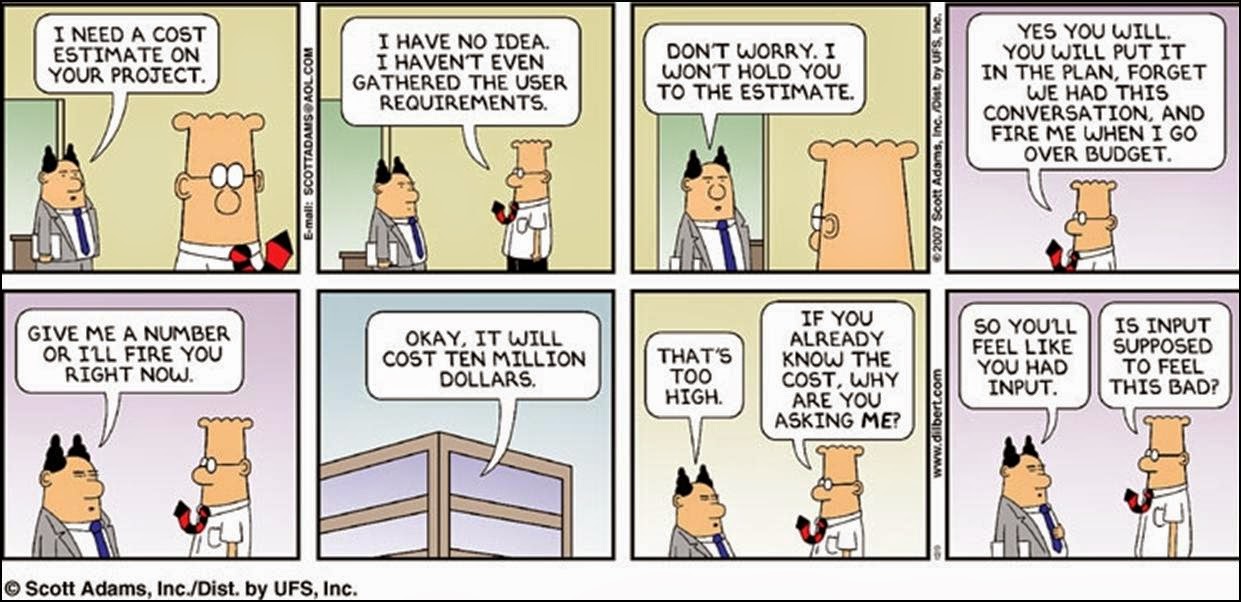Planning should enable us to do right and reliable decision making. - John Maynard
I am big proponent of doing estimation. I think it has advantages if done right. For doing it right, I personally found Mike Cohn's "Estimate Size and Derive Duration technique" very useful.
In this technique we separate the step of Estimation from the step of Deriving the Duration.
In Estimation step, we figure out the size of the work to be performed. It can be done in any unit your team prefer i.e. story points, ideal time or any other unit. Once we have the rough number for size then we estimate our pace i.e velocity or cycle time. After having both the numbers, finally we derive the duration.
Example:
Lets say we are building a new analytics dashboard. I request my team to estimate the backlog in ideal time (Time Spend doing the work) by making three assumption.
After doing my above math I try to find their pace. If the team is new to agile methodology, I prefer to wait for couple of sprints/stories to finish before guessing their pace. Otherwise I like to average the velocity or cycle time by removing the out liars.
Once I have above two units, I simply divide to derive duration.
Estimation / Pace = Duration
Hope it helps
Manisha
I am big proponent of doing estimation. I think it has advantages if done right. For doing it right, I personally found Mike Cohn's "Estimate Size and Derive Duration technique" very useful.
In this technique we separate the step of Estimation from the step of Deriving the Duration.
In Estimation step, we figure out the size of the work to be performed. It can be done in any unit your team prefer i.e. story points, ideal time or any other unit. Once we have the rough number for size then we estimate our pace i.e velocity or cycle time. After having both the numbers, finally we derive the duration.
Example:
Lets say we are building a new analytics dashboard. I request my team to estimate the backlog in ideal time (Time Spend doing the work) by making three assumption.
- It's all you work on
- no one interrupts you
- and everything you need is available
After doing my above math I try to find their pace. If the team is new to agile methodology, I prefer to wait for couple of sprints/stories to finish before guessing their pace. Otherwise I like to average the velocity or cycle time by removing the out liars.
Once I have above two units, I simply divide to derive duration.
Estimation / Pace = Duration
Hope it helps
Manisha

